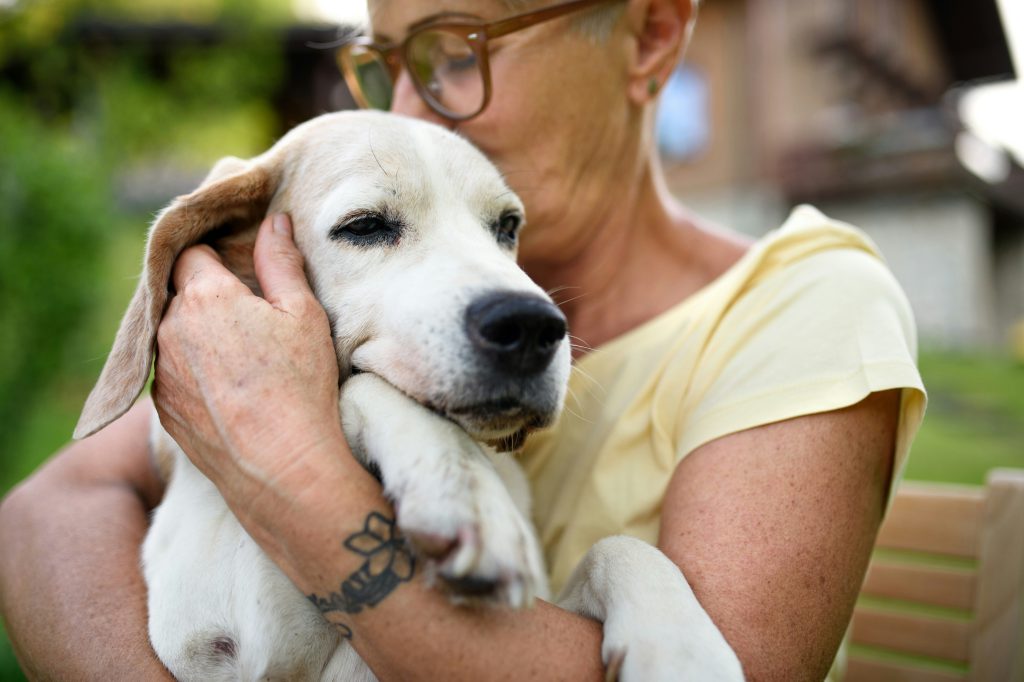Considering Sharing Dog Care With Your Elderly Parents? Key Questions To Ask Yourself

Collaborative Post
Owning a dog can be greatly beneficial for people of all ages, including older people. Studies show that there are many health benefits to having a dog around, including reducing loneliness and making you exercise more often.
However, dogs can live for 10 years or more, meaning for older people who aren’t sure how long their health will hold out, getting a dog can be a major commitment that they don’t want to undertake.
One approach that’s becoming more popular is sharing a dog with your elderly parents. This way, you can own a dog but get free help in the form of pet-sitting from your parents, who in turn get access to a furry friend.
This is a win-win situation for everyone involved, but only if you’re prepared for everything that sharing ownership of a dog entails. Keep reading to understand all the factors involved in caring for a dog with your older parents.
Who Makes Important Decisions For Your Dog?
Important decisions, such as what vet to use and what diet to give your dog, can be difficult to navigate when you’re sharing ownership of your pet. Many older dog owners might not have heard of modern dog care solutions, such as harnesses or raw dog food. If you plan on using these approaches, then you’ll have to make sure that you explain them to your parents and help them to understand the benefits. Thankfully, raw dog food providers like Southend Dog Training offer a range of resources to help you explain the benefits to your parents and get them involved in feeding and caring for your new shared pet. By helping your parents to understand and learn, you can improve their cognitive skills and make them feel a part of pet ownership.
How Will You Split Dog Care Bills?
Caring for a dog can be expensive, with costs such as food, veterinary care, grooming, and other expenses quickly adding up. As such, it’s important that your parents have the financial means to contribute to the dog’s care or that you are prepared to cover the costs to ensure that your dog never has to go without. It’s important that you talk to your parents about the costs of a dog and make a plan for who will pay for what aspects. You can then ensure that everyone’s on the same page and prepared for the financial side of having a dog in your lives.
How Can You Keep Everyone Safe?
While dogs are great fun to have around, they can sometimes pose safety risks, such as tripping hazards or potential bites, especially for elderly individuals with mobility or balance issues. Consider your parent’s ability to handle and control the dog safely, as well as any safety risks the dog might pose. There are some simple solutions you can use to keep the dog and your family safe, like baby gates, which can be installed strategically to stop your dog from accessing certain areas if they become too boisterous. Also, crate training your dog can help your parents to ensure the dog doesn’t damage their property if they need to leave them unattended at any time.
A Quick Conclusion
All in all, if you decide to share dog care responsibilities with your elderly parents, it’s essential to have open and honest conversations about expectations, boundaries, and responsibilities. Regular communication and a well-defined plan can help ensure that the dog’s needs are met and that your parents are not overwhelmed by the demands of pet ownership. By asking yourself these questions and having a plan from the beginning, you can make the transition to sharing a dog with your parents straightforward and ensure that everyone enjoys the many benefits of having a dog around.
Image Unsplash+

